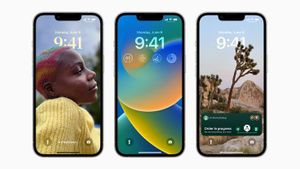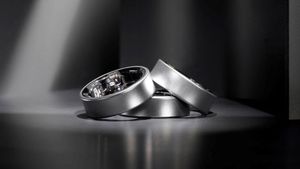JAKARTA - Meta CEO Mark Zuckerberg's plan with his glasses begins in 2024 with Project Nazare. He wanted not to rely on Apple and Google to get ahead.
This means that the first generation of AR glasses will have a wireless device in the form of a telephone that disassembles the computing part by relying on a division in Meta itself, CTRL-Labs for control, this is necessary for the glasses to operate and does not depend on iOS or Android devices.
According to reports, the glasses will have a lighter, more advanced model the following year from launch i.e. 2026, and a third iteration in 2028. However, for this initial model, Meta is building its AR glasses OS on top of Android after abandoning plans for the special microkernel operating system based on Fuchsia.
This first model is expected to offer full AR with 3D visuals, eye tracking, an outward-facing camera, stereo audio, a relatively wide field of view, and an audience-acceptable display.
Citing The Verge from Engadget, Thursday, April 14, the main feature is being able to communicate with other people's holograms. Zuckerberg seems sure this will provide a more enjoyable experience than just a simple video call.
The tech giant might also hedge its bets by releasing other wearables, such as a pair of smart glasses paired with a phone, dubbed the Hypernova, these devices that will display notifications via a small screen. Hypernova will also debut in 2024.
Sales expectations seem modest for the first Project Nazare glasses. Meta might just sell goggles for the low tens of thousands to hobbyists and developers.
SEE ALSO:
Zuckerberg seems to see them as important. A former staff member said Zuckerberg wanted the AR glasses to represent iPhone moments for Meta, like the launch that rocked the industry and redefined the company.
Whether they fulfill that ambition or not is a matter of late. Meta is known to have faced many setbacks, including canceled plans for a dedicated OS (if Google Fuschia based) and staff changes.
However, it's not hard to see why Zuckerberg put so much energy into AR glasses. Meta has an increasingly negative reputation due to privacy concerns, content controversy, and regulatory pressure.
The existence of AR glasses is claimed to help Meta leave the scandal and regain the innovator status it had in its early years.
The English, Chinese, Japanese, Arabic, and French versions are automatically generated by the AI. So there may still be inaccuracies in translating, please always see Indonesian as our main language. (system supported by DigitalSiber.id)















